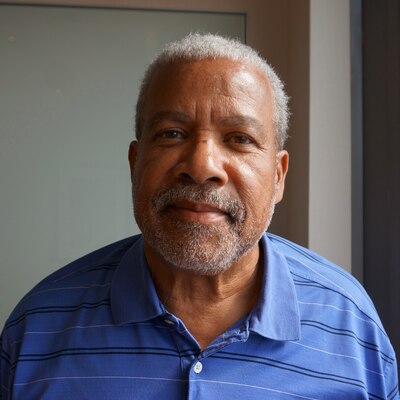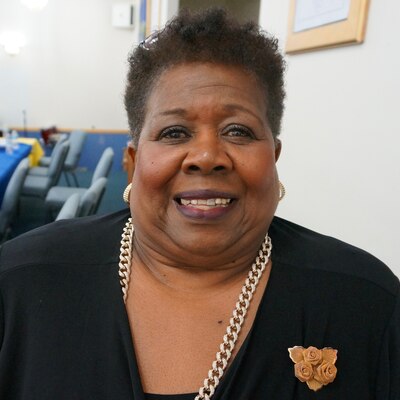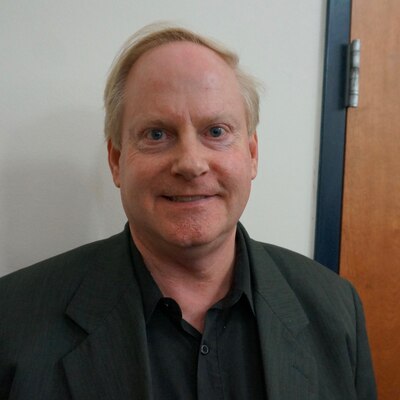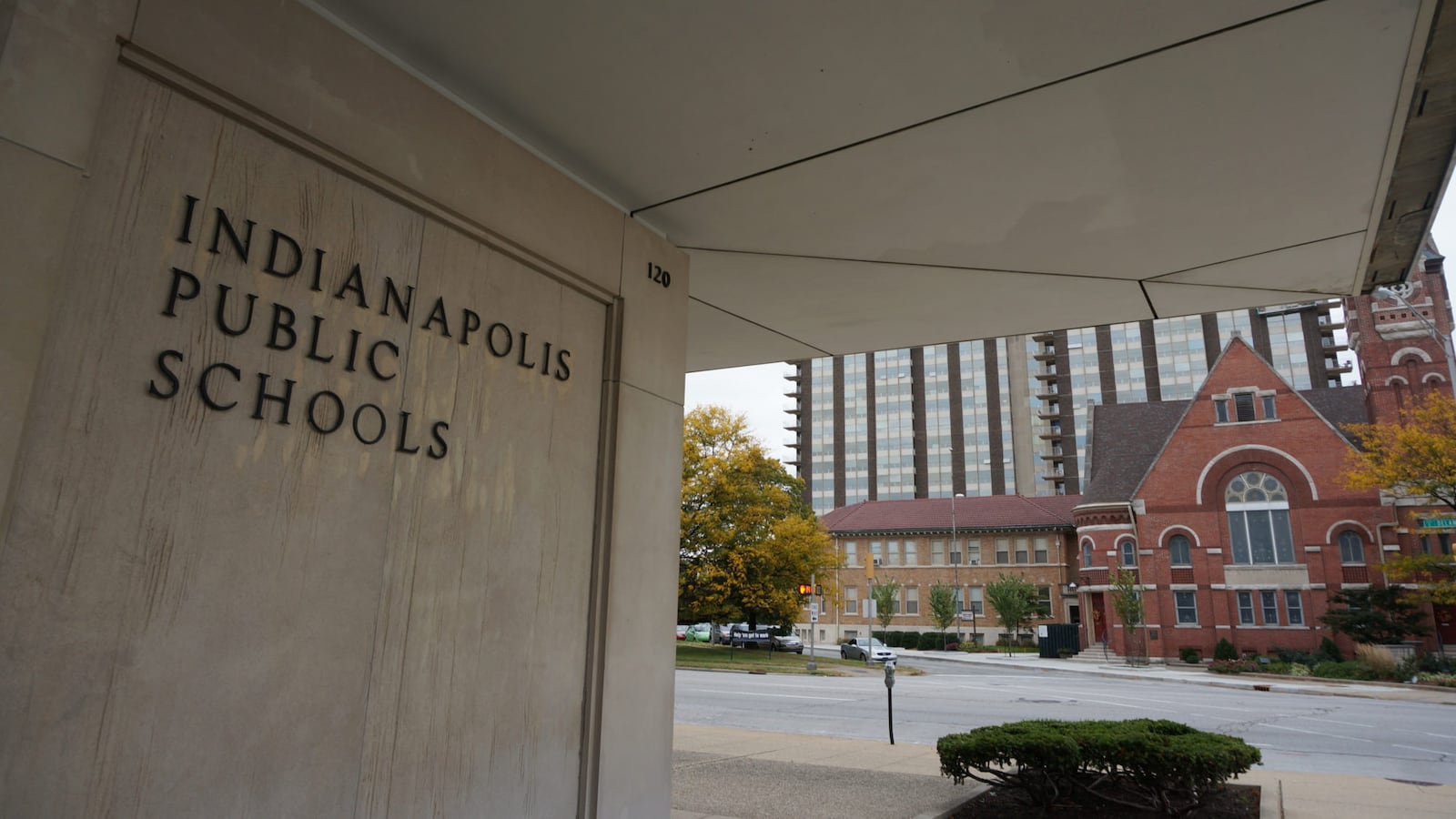(This is the fourth and final story in a series profiling the 10 candidates for Indianapolis Public Schools board. Today Chalkbeat highlights the positions of candidates for the at-large seat now held by Sam Odle, who is facing two challengers: Elizabeth Gore and Jim Grim. The winner will represent the entire district.
For more coverage of the campaign for school board and state political candidates, check out the Chalkbeat election series.)
In a fierce contest for control of the Indianapolis Public Schools board, the race for the district-wide seat is one of the most competitive.
It’s the only one of the four open school board seats that represents the whole district.
Sam Odle first won a seat on the board four years ago, easily fending off a single challenger — protestor Larry Vaughn, who is now running against Diane Arnold in District Four. This time around, the landscape has changed: Two well-established candidates are challenging Odle for the seat, including a former-school board president and a longtime education advocate from Indiana University-Purdue University Indianapolis.
Here’s how the candidates compare:

Sam Odle, a former top executive at Indiana University Health, was one of the first wave of pro-reform candidates to win seats on the board. He is part of a majority that has pushed for policies such as reducing the size of the district’s central office, giving more control to principals and partnering with charter schools.
Odle said the district is improving in many ways: It is seeing progress in reading scores, graduation rates are up and the number of failing schools has gone down significantly. But he said that biggest challenge facing the district is still ensuring students are getting a quality education.
Odle, who sent his two younger daughters to private school, attended IPS schools as a child until his junior year of high school. He even tried to continue at Shortridge High School after his family moved to Washington Township, he said, but when the principal realized he and his brother were in the wrong district, he put them in a cab back to North Central High School.
Odle said his own story illustrates the changing education landscape. It used to be that families who sent their children to public schools had few options, but now neighborhood schools face competition from charter schools and nearby districts.
“Families can go to whatever district school they want to … and take their tax dollars with them,” he said. “That’s why it’s so important that the things we are doing in IPS today are positioning IPS to be competitive, so that we can compete to attract and retain families.”
Odle said his substantial business experience prepares him to support the administration. But his role in business has also raised flags for some voters. Odle was on the board of the Carmel-based, for-profit college ITT Educational Services for 10 years until the company filed for bankruptcy last month following severe federal sanctions. Last year, Odle received $282,502 from the company including board fees and stock, according to public records.
Odle said his role at ITT didn’t overlap with his work as an IPS board member because the school targeted mid-career students. He defended the company as meeting a need for students who can’t go to traditional colleges and said its closure was a symptom of the larger problem of students overburdened with debt.

Elizabeth Gore, a former IPS board president who lost her bid for reelection to Gayle Cosby in 2012, has a deep history with the district. She graduated from Crispus Attucks High School and nearly everyone in her family, from her mother to her grandchildren, attended IPS schools, she said. Her three children graduated from Arsenal Technical High School, where she led the parent teacher association.
Gore said that the biggest issue facing the district is the struggle to communicate changes to students and families. Many families still don’t understand the district’s plan for eliminating combined middle and high schools or why the current board made that decision, she said.
“I just don’t think that it’s being communicated to the public,” Gore said.
A retired customer service manager for an airline, Gore worked first as a teaching assistant and then as a trainer of classroom aids when her children were in school. She points to her experience making policy as a school board member and her commitment to improving education as reasons why she makes a strong choice for the board.
“I feel that quality education is where all students are treated equally, from the students that are in special education to those students that are accelerated,” she said.

Jim Grim, who leads community and school partnerships for IUPUI, is a longtime advocate for community supports in schools. This race is his first campaign for public office. Grim said he threw his hat in the ring for the school board because he is frustrated with what he sees as the hands-off approach of the current board, which he believes does not have enough awareness of on-the-ground problems in schools.
Raised in rural Indiana, Grim started working with IPS in the 1990s as a volunteer with a United Way of Central Indiana community engagement program. That volunteer job led to a long career working to build community supports for schools in the district, Grim said. The candidate, who doesn’t have children, was part of the group that worked to get George Washington High School reopened on the near west side, and he spent more than a decade working there first as a staffer for the Mary Riggs Neighborhood Center and then through his position with IUPUI, he said.
Grim says his experience working in schools gives him a unique perspective because he understands the intricacies of the district from the inside. He said current board members believe they shouldn’t interfere in schools because that’s the role of the administration, a strong contrast with his approach.
“I believe it is the responsibility of board members to understand what’s happening in the schools they represent,” he said. “How can you hold an administration accountable if you don’t know what’s going on? You only know what you are being told.”
On innovation schools:
Odle said he supports innovation schools, which are managed by outside partners but considered part of the district, because he believes the district must take action when schools are failing.
“The structure of the school isn’t as important as what will provide the best leadership and the best faculty at that school,” he said. “If that is working with a charter school, then we will try that. … If it’s working with a traditional school that’s doing well and performing well, like some of our magnet schools, then we will continue that strategy.”
Gore said innovation schools have the potential to keep money within the district and improve education for children. But her views on innovation schools depend on how they affect students.
“My main objective with innovation … is that no matter how it goes we are holding our teachers accountable as well as our administrators,” she said. “I want to make sure it’s quality.”
Grim said he is not entirely opposed to innovation schools, but the district’s embrace of the new strategy reveals that administrators are unable to improve schools without outside partners. Leaders should be aware of problems in schools and work to fix them years before they get bad enough to need conversion to innovation status, he said.
“The fact that the district is spending so much time getting other people to manage their schools is a big, big problem,” he said. “They’ve already failed.”
On Superintendent Lewis Ferebee:
Odle said that Ferebee is doing such a good job running the school system that the district is on the cusp of becoming a model school for the country.
“Running an urban school system is a real challenge today,” he said. “I think Dr. Ferebee is doing a great job.”
Gore said that Ferebee does not do a good enough job communicating with the community, particularly when it comes to showing that outside organizations, such as the Mind Trust, are not leading the district’s agenda. But she said she supports his work improving the district’s lowest performing schools.
“There were some schools that weren’t doing well,” she said. “I really think that his objective was to … bring them from F schools to schools that are not failing anymore.”
Grim said that Ferebee is not afraid to take creative approaches to improve education, but the district is rubber stamping everything Ferebee suggests and the board should do more to hold him accountable. One area where he said Ferebee is particularly weak is communicating with families and community members.
“Communication is extremely important for any endeavor,” he said. “We have a tremendous communication issue right now between the Indianapolis Public Schools and it’s constituencies.”
On closing schools with low enrollment:
Odle said the district needs to make sure it is not keeping open high schools that will never be fully used, because that means spending money on maintaining buildings that could go toward education. The district should work with the community to find alternative uses for those buildings, he said. He also said IPS should improve high school quality so it can attract more students to fill empty seats.
“We have thousands of kids who live in the IPS school district, who once they get to high school they opt to go outside the school district,” he said.
Gore said that the district may be forced to close schools, since IPS high schools have more seats than students. The district still has to spend money for heat and other maintenance costs in buildings that have lots of empty seats, she said.
“It just doesn’t make good funding sense,” she said. “It is something we would need to look at closely.”
Grim said the district will either close schools or come up with a way to stabilize enrollment by improving the quality of education available to students in the district.
“They’ve lost 25 percent of the population in the last 10 years,” he said. “If we follow that, IPS won’t be around much longer.”
On supporting teachers:
Odle said the district needs to provide useful teacher training so educators are up-to-date on new approaches. He called for teachers to get opportunities like sabbaticals so they can gain more experiences that will connect education to the workforce. He also said the district needs to be more efficient and attract additional resources so that it can increase pay for teachers.
“A teacher should not have to be paid less because they work in an urban school system,” he said. “If anything, they should be paid more because there are more challenges that they are going to have to face.”
Gore said the district should give teachers quality training and more assistance running their classrooms by providing resources like teaching aids. But she said the main change the district can make is raising teacher pay.
“They are the lowest paid professional people,” she said. “I am always for increasing teacher pay.”
Grim said the district needs to do more to support teachers. He pointed to the district’s new approach to discipline, which aims to reduce suspensions and expulsions by focusing on incentives for good behavior instead of punishments. He said he supports the change but that teachers haven’t gotten enough support and training from the district to make the new approach work.
He also said the district is pushing out the most experienced teachers and hiring educators who are new to the classroom. He said that teachers should be paid more, and raised concerns that the district lowered the top of the pay scale when it last negotiated a contract with the teachers union in 2015.
“I don’t know who thought that teachers weren’t worth that much,” he said.

